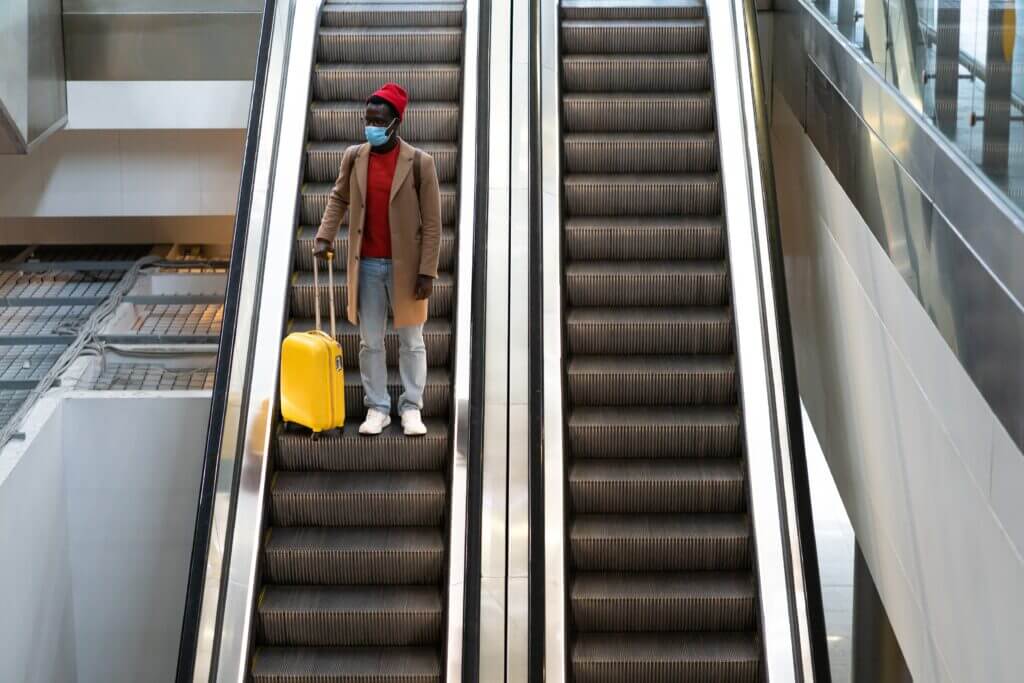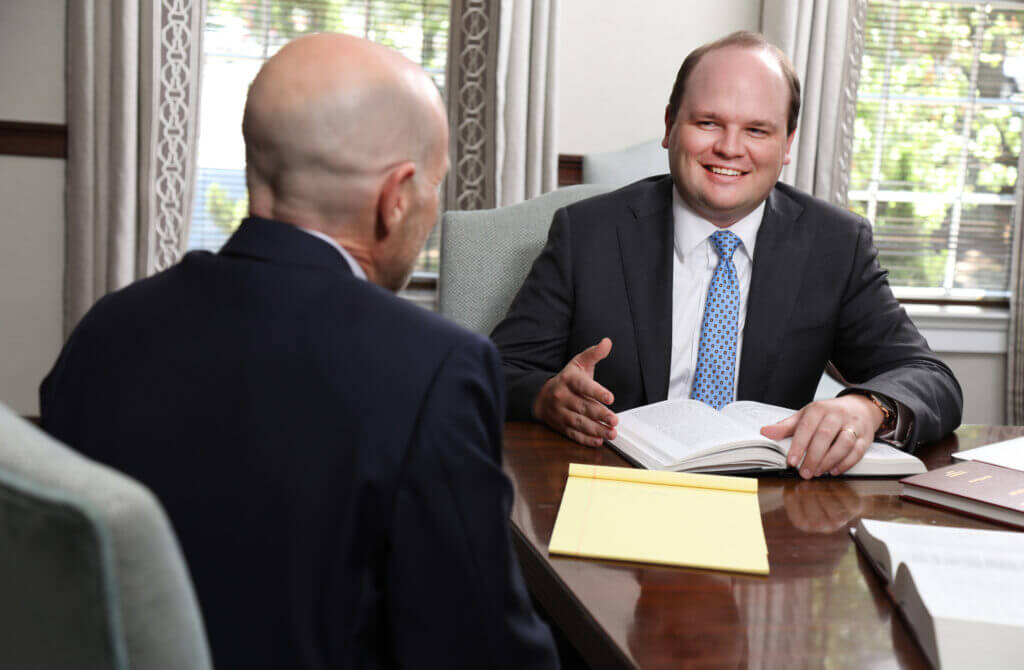Georgia property owners have a responsibility to keep visitors safe. If applicable, this includes ensuring their elevator or escalator is functioning properly and is regularly serviced.
Whenever large machinery is involved, the potential for serious injury exists. Elevator and escalator injury victims often suffer catastrophic wounds like traumatic brain injuries, broken limbs, lacerations, or death.
The skilled personal injury attorneys at Blasingame, Burch, Garrard & Ashley, P.C. hold the correct people responsible when someone is unnecessarily injured on an elevator or escalator. When negligence is a factor, this may involve filing a claim against the property owner, business, maintenance company, insurance company, or manufacturer.
Why Do Elevator and Escalator Injuries Happen?
There are many reasons why someone might get injured on an elevator or escalator. It could be due to defective parts, lack of proper maintenance, or a malfunction of some sort. Someone could also slip and fall if there’s an uncleaned spill, uneven flooring, or a misplaced rug.
Common Causes of Elevator Injuries:
- Defective or malfunctioning doors
- High speed
- Pully system malfunction
- Mis-leveling – when an elevator car is misaligned with the floor of a building
- Faulty wiring
- Lack of maintenance and/or repair
- Elevator shaft falls – when there are no warning signs or caution tape, someone may fall into the elevator shaft.

Common Causes of Escalator Injuries:
- Missing or broken steps
- A loose or missing guardrail
- Defective parts
- Sudden stops or reversals
- Negligent design/excessive space between the moving steps and the stationary sides
- Lack of maintenance and/or repair
- Missing screws or other essential parts
- Mis-leveling
- Entrapment – when a body part such as a hand or finger, piece of clothing, shoe, or shoelace becomes lodged between the steps or the side of the escalator.
Common Types of Elevator and Escalator Injuries
We understand that an injury from a defective or malfunctioning elevator or escalator can have devastating consequences for victims and their families. Many times, the injuries are life-altering and require multiple surgeries, ongoing doctor visits, and physical therapy. Sometimes injuries from elevators or escalators cause permanent disfigurement. In these types of instances, families are often left to care for their loved one for the remainder of their life. Sometimes the injuries are so severe that the victim dies as a direct result of their wounds.
Some common elevator and escalator injuries include:
- Broken bones
- Traumatic brain injury
- Lacerations
- Being crushed
- Amputation
- Death
Elevator and Escalator Death Statistics
In the U.S., elevator and escalator injuries kill about 30 people and seriously injure about 17,000 people each year, according to the U.S. Bureau of Labor Statistics and the Consumer Product Safety Commission. Elevators cause about 90% of the deaths and 60% of the injuries. Nearly half of the deaths (14) include people working on or near elevators, many of those resulting from falling into elevator shafts. About 6,800 escalator-related injuries result in emergency room visits in the United States each year.
Elevator and Escalator Injuries: Who’s Responsible?
If you or a loved one has been injured by an elevator or escalator, a skilled personal injury attorney can help determine who is responsible. This typically depends on varying circumstances and may include multiple parties such as the manufacturer, designer, maintenance, and repair company, building owner, business owner, and various staff or managers who are responsible for the premises where the injury occurred.
Many elevator and escalator injuries result from negligent operations. The experienced personal injury attorneys at Blasingame, Burch, Garrard & Ashley, P.C. understand how overwhelming the legal process can be, which is why we offer compassionate guidance and skilled representation you can rely on. We have the connections and resources needed to determine who is at fault for your injury. We can work closely with accident reconstruction experts, mechanics, and engineers to pinpoint whether your injuries were caused due to someone else’s negligence. We can help determine whether the elevator or escalator was defective or malfunctioned, whether the business or organization was aware of the defect before your injury, what steps responsible parties took –if any— to repair the issue and keep visitors safe, and work with doctors or surgeons to prove your injuries were a direct result of negligent practices.
Georgia’s Statute of Limitations on an Elevator or Escalator Injury Case
Do not wait to start pursuing your compensation through a personal injury claim.
In Georgia, the statute of limitations – the period following an injury during which you are eligible to file a lawsuit and potentially recover compensation for your damages – is two years from the date of the accident, in most cases.
Click here to learn more about Georgia’s statute of limitations.

Consult with a Skilled Personal Injury Attorney
Many victims injured on an elevator or escalator experience a life-changing event and will likely face steep financial damages. You may be able to recover compensation to help pay for medical bills, required home modifications, prosthetics, ongoing medical treatment, lost wages, and pain & suffering.
If your injury occurred because of another party’s negligence, you have the right to pursue compensation for your damages through a personal injury claim. We can help.
The attorneys at Blasingame, Burch, Garrard & Ashley, P.C. have a proven track record of securing the results victims of negligence deserve. This includes complex cases that involve multiple parties.
We can work with experts and investigate the company’s or building owner’s history of policies and procedures, as well as documents about the people involved. This helps us determine whether negligent practices were a factor in your elevator or escalator injury. If negligence is found, we will protect your interests by pursuing a case against the parties involved, and if necessary, by representing you at trial.
Please call our office at 706-354-4000 to schedule a free consultation or fill out our contact form to tell us more about your potential case. There is no cost unless we recover money for you in your case.
